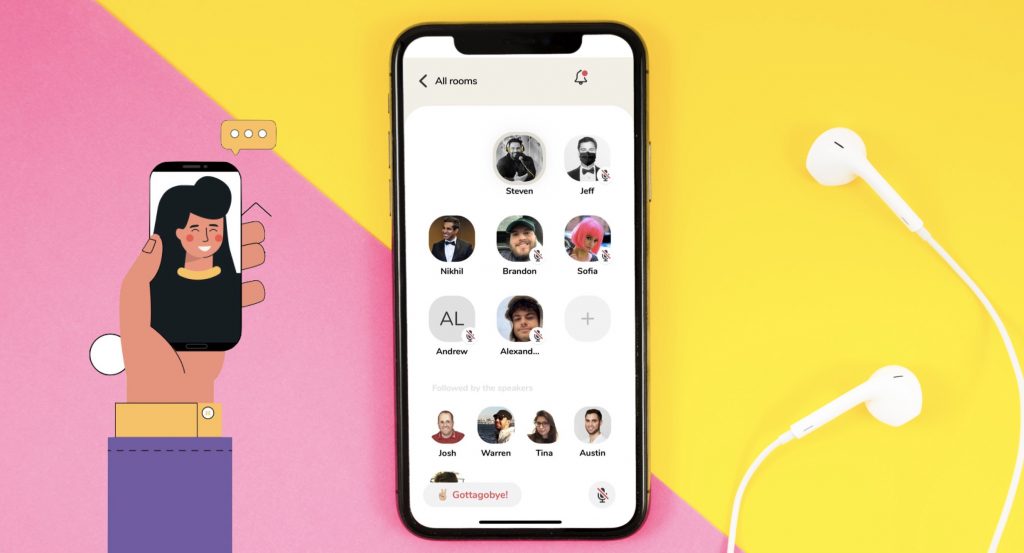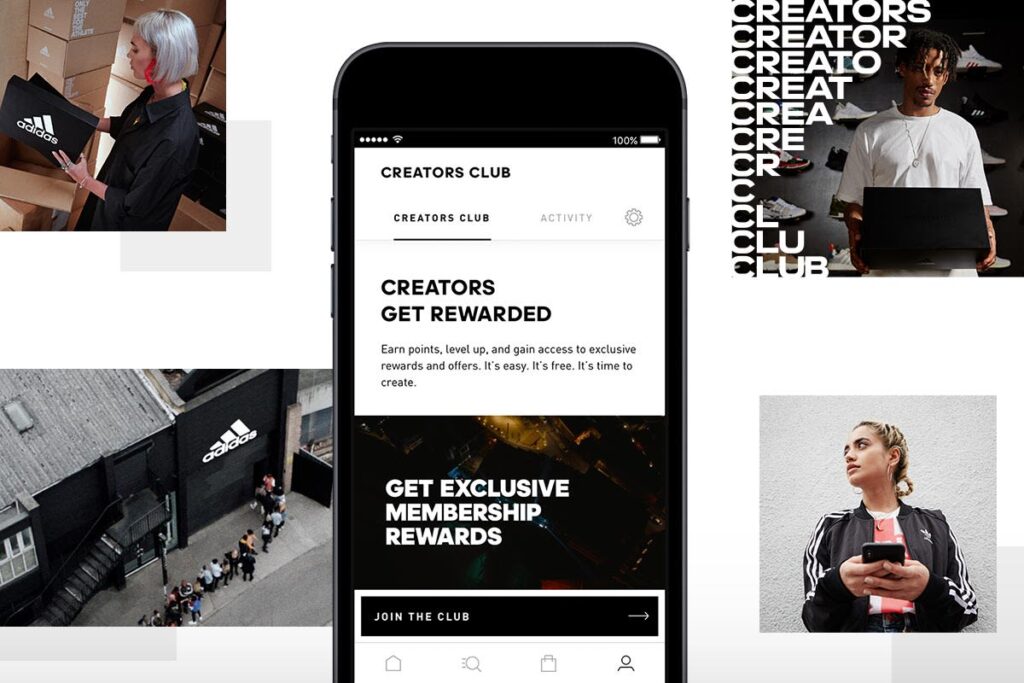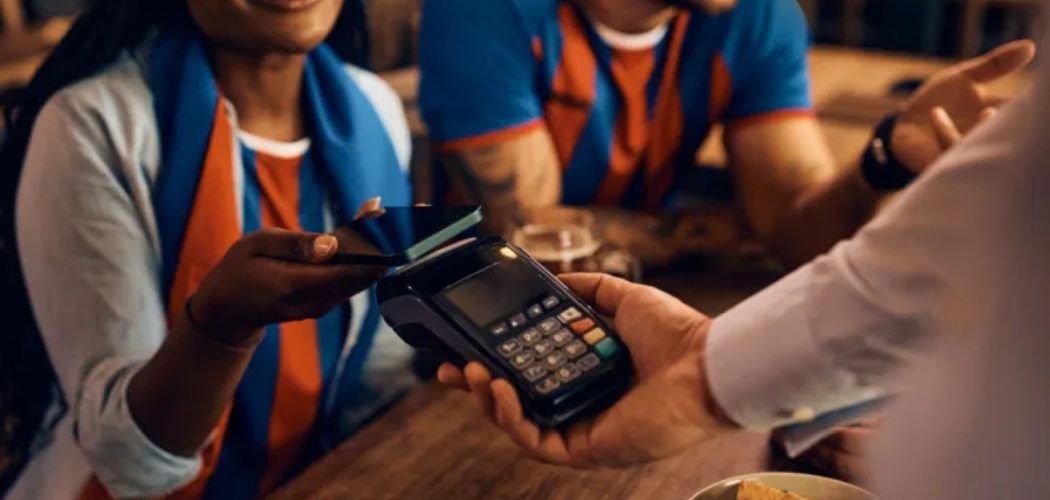A couple of weeks ago I virtually attended the YMS:Online Europe festival to check in on the latest and greatest Gen Z trends and insights. The last year has been a challenging time for all but particularly for Gen Z who by this point have experienced a recession, Brexit and a pandemic, all before legally taking their first sip of a pint. Here I share 5 take-aways from the festival that talk to the year they’ve had and the trends that are emerging, and what that might mean for the world of loyalty.
By: Isobel Finlayson
Clubhouse has got everyone talking but does Gen Z approve
Clubhouse was the talk of the town at the festival. Celebrities like Elon Musk and Tiffany Haddish are members and according to the Guardian, as of 1 February 2021, Clubhouse has 2 million users.
So what does Gen Z think. Esther Akpovi says, “It feels so authentic and gives you the opportunity to meet people from across the world. It feels like a place where you can grow your business but less serious than LinkedIn.”
Josh Akapo, co-founder of Archtype, posed an interesting question during his panel talk, “is Clubhouse really that inclusive?”. Given that Gen Z are all about inclusivity and reject notions of exclusivity, Clubhouse presents an interesting paradox for this generation. Josh continued, “the app is invite-only, there are no captions or subtitles, and the format favours the extrovert over the introvert.” In other words, it takes some serious cojones to get up on stage, virtual or not.
Whilst Clubhouse is the talk of the town now, so was House Party. Will Clubhouse challenge the big four and breakout as a mainstream trend among Gen Z and the rest of the world? YouTube is still the most popular platform with 84% of Gen Z saying they use it regularly. Followed by Instagram with 73%, Snapchat with 63% and Tik Tok coming up the ranks with 48%.
The concept of talks, conversations, and masterclasses is something we have seen evolve during the pandemic as loyalty rewards. What we’ve seen with Gen Z is if they think they can get that content elsewhere, then they are not interested. Masters of YouTube, this value driven bunch will only attribute value to exclusively created content. O2 Priority recently teamed up with No Signal Radio to put on masterclasses for their members for £1 which included ‘How to write and perform a song’ and ‘How to produce a hit’. Exclusive content at an accessible price is the right way to engage this audience.
Loyalty programme rewards should hold real value or help do good
Our 2020 research with YouGov told us that Gen Z really like the idea of brands offering loyalty programmes (79% like the idea of loyalty programmes), but that they just don’t join them (only 49.1% of males and 56.7% of females are members of a loyalty programme in the UK compared to a national average of 76%). We took the opportunity to ask the Voxbuner Youth Panel for their thoughts on what would motivate them to sign up to a loyalty programme, and what do brands need to do to gain their loyalty.
For Oyin it was about getting something back that was of true value: “It's all about how it's communicated and what the reward is. For example, after 10 stamps don't give me 10% off. It needs to be high value.”
Whilst Esther would start joining loyalty programmes if the brands were giving back: “Not signed up to any and don't see the point of them. Unless the company is doing something to combat an issue i.e. climate change, I’m not interested. But this also can’t be a token gesture and needs to form part of the overall brand strategy.”
Based on Oyin’s feedback, we would recommend checking out Xtra VIP which is Savage x Fenty’s loyalty programme. When you sign up to be a VIP you get an intro offer of 50% off sitewide and ongoing access to promotions. You can also build up a balance to spend on site meaning you can buy up to £200 worth of product for £10. Furthermore, every month as a member you can get your hands on the Xtra VIP box which is a box of Xclusive styles and collectibles hand-picked by Rihanna herself. That’s a big tick for ‘high value’ rewards.
If doing good is more your thing, then check out TK Maxx & Homesense’s loyalty programme: Treasure Rewards. You earn a key each time you buy something, and once you have five keys, you can trade it in for a reward. TK Maxx have been sharing the love by giving their customers the option to donate £5 to their chosen charity, Macmillan Cancer. Not only that, since 2011 they have been running the Sustainable Trade Programme in Uganda to help increase parents’ incomes so they can afford to send their children to school. The ‘made to do good’ collection that is sold instore includes cotton, craft, coffee, and chocolate products. A great example of a brand that is authentically invested in doing good.
Students spend more on clothes than groceries, and a record-breaking year for university applications in the UK
UCAS Media shared that last year saw the highest number of University applicants at 728,780 (over 50% from London alone) and 2021 looks on track to be another record-breaking year with 43% of UK 18-year-olds having already applied which is 3% up from the same point last year. With the furlough scheme extended to September, it provides some hope that we might avoid a huge recession and large-scale unemployment, as it gives companies a chance to get back on their feet. However, Gen Z are meticulous planners and will not leave things to chance when it comes to their future, so it comes as no surprise that applications are on the up.
Despite students missing out on the ‘rite of passage’ that is Freshers Week (my millennial liver shudders at the thought now) UCAS reported that year on year spend tracked at around the same compared with 2019, with the night-out being the obvious casualty from the top 10 spend categories. Last year Freshers spent £406 on average in Freshers week and their top spending categories in order were as follows: Books and study materials (£78), Clothes (£73), Groceries (£65), Homewares (£55) and Alcohol (£51).
They spend more on clothes than groceries. Let that sink in. According to UCAS Media, 68% bought new clothes and shoes before starting Uni. When asked to name their top brands, 63% of the top 20 brands were fashion/athleisure brands; top 5 included Nike, Adidas, ASOS, Primark and Zara. To quote Rebecca Hopwood of UCAS Media, “the Campus catwalk is very much alive”. Personal appearance and looking good is a top priority for this generation, and it is something we saw first-hand when we gave away free Glossybox boxes away through VOXI Drop and all boxes were snapped up by this youth audience in a record response rate.
Pre-loved is growing but value is still the number 1 driver
Josephine Hansom of Youth Sight shared that reasonable price continues to be the trend that Gen Z value most from brands. Taken from the State of the Youth Nation, Josephine added that they prioritise affordability (53%) over high quality (25%), being fashionable/on trend (11%), and being an ethical company (10%). Still a long way to go on the ethics vs value dilemma but there are signs that behaviours are changing.
When asked, “what brand will be the next big thing?”, the most popular answer from Gen Z was any brand that is sustainable or environmentally friendly. In 3 years, there has been a 16% increase of Gen Z deciding to boycott brands based on their ethics; growing from 1 in 5 to more than 1 in 3.
Pre-loved or second-hand is growing in popularity with this audience but still represents the minority — 16% would choose to buy second-hand now vs 4% in 2015. Depop is the king pin of pre-loved and proving to be a big trend with the Gen Z audience. Their social feed proudly shouts inclusivity and encourages freedom of expression which is hugely important to Gen Z: 85% say being themselves is more important than fitting in (source: Voxburner Youth Trends Report 2021). The pitfalls of second-hand for this audience are around accessibility. Often there is only one type of item available and ‘vintage’ usually comes with a hefty price tag which makes being on trend at an affordable price a lot more difficult than popping into Primark.
However, as it stands, the majority will still prioritise looking good over personal ethics. Youth Sight reported the shocking statistic that 23% of Gen Z wear an item once before chucking it out. Whilst 54% feel bad for buying fast-fashion brands, they will still use them when money is tight. The intention is there to begin the break-up process with the likes of Primark, Boohoo and Amazon, but this won’t happen until buying pre-loved becomes more accessible in price, and in securing ‘on-trend’ items they want.
When money is so tight, how can fashion brands keep young customers engaged with their loyalty programmes outside of the traditional reward linked to purchase? 62% said they would like to be rewarded for liking or sharing social media posts and 65% said the same for adding personal information to their profile, 10% more than millennials (source: Wunderman Thompson Disrupting Loyalty Report). Adidas’ loyalty programme, Creators Club, does exactly that. They reward members with 100 points for creating an account, completing your profile and even, participating in an Adidas runners’ event. These less traditional avenues are a great way to keep budget-conscious customers engaged and rewarded.
Digital natives will demand more from in-store experiences
Covid-19 forced tech innovation on all of us and Gen Z were the best equipped to adapt thanks to their digital native status. However, according to Voxburner’s 2021 Youth Trends report, there were still a lot of firsts for Gen Z: 44% attended their first online class and 75% made an online purchase in a category they had never bought online before, with beauty and food being the most popular examples.
However, there is hope for bricks and mortar yet with 95% saying they see the advantage of shopping in-store. Voxburner’s research shows that Gen Z are more prepared to buy clothes and tech online but 53% would still prefer to try and buy beauty products instore. In the Youth Panel discussion, Esther agreed: “I’m lazy when it comes to shopping for clothes. If I can order something at a click of a button, I’m going to do that over going to a physical store.”
Josephine went onto say that Gen Z are itching to get out onto the high street, not because they can’t buy what they need online but to have experiences and be closer to the brands they love. Josephine added that retailers need to think about their offering to Gen Z; it needs to go beyond the transactional experience because that is something they can do from home. Lidl GB launched their loyalty programme Lidl Plus in September last year and as part of the rollout, they showcased the app to customers entering the supermarket on huge interactive screens. Customers also got a £5 welcome coupon for signing up to the app. We expect to see stores returning with experiential on their roadmap once the dust has settled, as Gen Z (along with everyone else) will be craving experiences more than ever.
Thanks to YMS:Online Europe for another great festival and look forward to attending the UK event later this year.
Isobel Finlayson is a Partnership Account Director at Mando-Connect.






